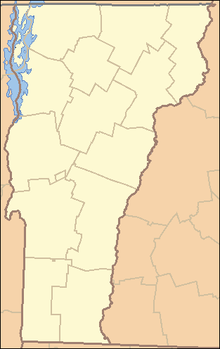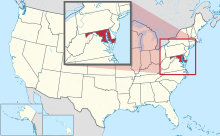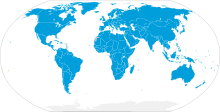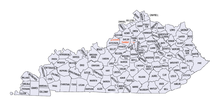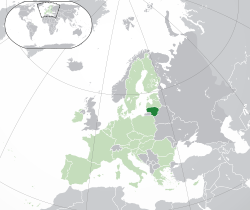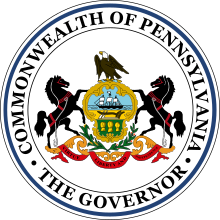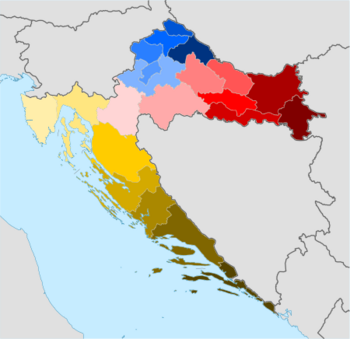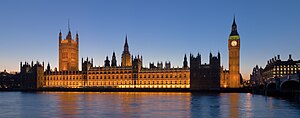Portal:Politics
| Main | Topics and categories | Tasks and projects |
The Politics portal
Politics (from Ancient Greek πολιτικά (politiká) 'affairs of the cities') is the set of activities that are associated with making decisions in groups, or other forms of power relations among individuals, such as the distribution of resources or status. The branch of social science that studies politics and government is referred to as political science.
It may be used positively in the context of a "political solution" which is compromising and non-violent, or descriptively as "the art or science of government", but also often carries a negative connotation. The concept has been defined in various ways, and different approaches have fundamentally differing views on whether it should be used extensively or in a limited way, empirically or normatively, and on whether conflict or co-operation is more essential to it.
A variety of methods are deployed in politics, which include promoting one's own political views among people, negotiation with other political subjects, making laws, and exercising internal and external force, including warfare against adversaries. Politics is exercised on a wide range of social levels, from clans and tribes of traditional societies, through modern local governments, companies and institutions up to sovereign states, to the international level.
In modern nation states, people often form political parties to represent their ideas. Members of a party often agree to take the same position on many issues and agree to support the same changes to law and the same leaders. An election is usually a competition between different parties.
A political system is a framework which defines acceptable political methods within a society. The history of political thought can be traced back to early antiquity, with seminal works such as Plato's Republic, Aristotle's Politics, Confucius's political manuscripts and Chanakya's Arthashastra. (Full article...)
Selected article
Feminism is a collection of movements and ideologies aimed at defining, establishing, and defending equal political, economic, and social rights for women. In addition, feminism seeks to establish equal opportunities for women in education and employment. A Feminist is "an advocate or supporter of the rights and equality of women". Feminist theory, which emerged from these feminist movements, aims to understand the nature of gender inequality by examining women's social roles and lived experience; it has developed theories in a variety of disciplines in order to respond to issues such as the social construction of sex and gender. Some of the earlier forms of feminism have been criticized for taking into account only white, middle-class, educated perspectives. This led to the creation of ethnically specific or multiculturalist forms of feminism. Feminist activists campaign for women's rights – such as in contract law, property, and voting – while also promoting bodily integrity, autonomy, and reproductive rights for women. Feminist campaigns have changed societies, particularly in the West, by achieving women's suffrage, gender neutrality in English, equal pay for women, reproductive rights for women (including access to contraceptives and abortion), and the right to enter into contracts and own property. Feminists have worked to protect women and girls from domestic violence, sexual harassment, and sexual assault. They have also advocated for workplace rights, including maternity leave, and against forms of discrimination against women. Feminism is mainly focused on women's issues, but because feminism seeks gender equality, some feminists argue that men's liberation is a necessary part of feminism, and that men are also harmed by sexism and gender roles.
Featured picture

Xi Jinping (pronounced [ɕǐ tɕînpʰǐŋ], Chinese: 习近平; born 15 June 1953) is the General Secretary of the Communist Party of China, China's "paramount leader".
Selected quote
Selected biography
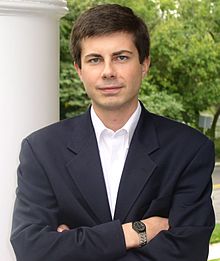
Pete Buttigieg served as mayor of South Bend, Indiana from 2012 to 2020. Elected in 2011 as a Democrat, he took office in January 2012 at the age of 29, becoming the second-youngest mayor in South Bend history, and the youngest incumbent mayor, at the time, of a U.S. city with at least 100,000 residents. During his mayoralty, he acquired the nickname "Mayor Pete". Coming out as gay in 2015, Buttigieg became the first elected official in Indiana to come out while in office, as well as the highest-ranking Indiana elected official to come out. Buttigieg won reelection later that year. In 2017, Buttigieg unsuccessfully ran for chairman of the Democratic National Committee, pledging to resign as mayor if he had been elected. Buttigieg opted against running for reelection in 2019, instead launching a campaign for the Democratic presidential nomination in the 2020 United States presidential election. While he subsequently lost his bid for presidency, during his campaign he garnered a high national profile.
Did you know (auto-generated) -

- ... that Crossing a Line compares Palestinian political expression on either side of the Green Line between Israel and the occupied Palestinian territories?
- ... that the London Forum, a British far-right organization, was described by an anti-fascist magazine as "[bridging] the fascist and Tory right"?
- ... that artist Tove Jansson based the children's book character Snufkin on a political philosopher whom she had dated?
- ... that in 1850s New Orleans, the French revolutionary Joseph Déjacque called for black slaves and the white working class to overthrow the United States in a social revolution?
- ... that although he was a former Indonesian prime minister, Soekiman Wirjosandjojo was not arrested during a political purge as he was considered a non-threat?
- ... that Nobel laureate Thomas Mann reportedly did not want his Reflections of a Nonpolitical Man to be translated into English during his lifetime due to its chauvinistic content?
More did you know...
- ...that the Almanach de Gotha is a directory of European nobility first published in 1763?
- ...that Nazi scientists claimed to have trained a dog to call "Adolf Hitler" as "Mein Führer"?
- ...that for many years, the Russian Soviet Republic did not have its Communist Party?
- ...that the World War II idea of Polish-Czechoslovakian confederation was eventually discarded by the Czechs, whose leader chose instead to believe in the Soviet Union promises of alliance?
- ...that Caedwalla of Wessex conquered southeast England during his brief 7th century reign?
- ...that in April 2009, Lim Hwee Hua became the first woman to be appointed a full Minister in Singapore's Cabinet?
In this month
- May 5, 2005 – A General Election in the United Kingdom sees Tony Blair's Labour government returned to office with a reduced majority of 66.
- May 14, 1948 – The Declaration of Independence of Israel is made.
- May 18, 1948 – The first Legislative Yuan of the Republic of China officially convenes in Nanking.
News and Current events
- August 11: 4 local government areas in New South Wales, Australia locked down after COVID-19 case
- August 11: Australia: AstraZeneca vaccine access expanded by Victorian government
- August 1: Australia: Victorian lockdown lifted
- July 29: Tunisia's president dismisses prime minister, suspends parliament
- July 25: Australia: Wikinews interviews Reg Kidd, mayor of the City of Orange, about COVID-19 lockdown and local government
- July 23: South Australia enters week-long lockdown to contain COVID-19 Delta variant spread
- July 21: Technological University Dublin senior lecturer Dr Lorcan Sirr speaks to Wikinews on housing market in Ireland
- July 21: Three rural councils in New South Wales, Australia enter 7-day lockdown
- July 21: Australia: Victoria lockdown extended by a week with 85 active cases recorded
- July 15: California governor signs new state budget, eligible Californians to get stimulus payments
Topics and categories
General images
Related portals
Associated Wikimedia
The following Wikimedia Foundation sister projects provide more on this subject:
-
Commons
Free media repository -
Wikibooks
Free textbooks and manuals -
Wikidata
Free knowledge base -
Wikinews
Free-content news -
Wikiquote
Collection of quotations -
Wikisource
Free-content library -
Wikiversity
Free learning tools -
Wiktionary
Dictionary and thesaurus



